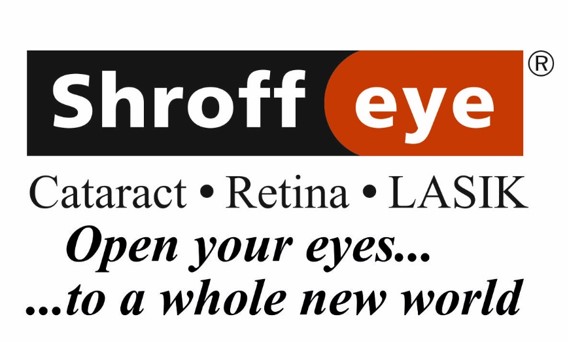Shroff Eye Hospital is India's First Eye Hospital accredited by the Joint Commission International (USA) since 2006. Shroff Eye is also India's first and only Wavelight Concerto 500 Hz LASIK center. Shroff Eye has stood for excellence in eye care since 1919. A firm commitment to quality is at the heart of all services provided at our centers at Bandra(W) and Marine Drive, Mumbai.
It is important to know that one’s food and lifestyle habits or choices have a known impact on eye health.
The Eyes are actually organs and contain muscles which help sight. While many yoga experts and even eye doctors will recommend exercises and less exposure to Computer or TV screens, there are also other methods through which one can keep their eyes healthy, along with eye exercises as well.
The Eyes should be looked upon and treated with as much care as any other part of the body; any other organ. There should be a healthy diet consisting of the vital nutrients and vitamins that help in preventing eye problems and disorders. Antioxidants also help in reducing the risk of cataracts and age-related Macular Degeneration.
Age-related Macular Degeneration (ARMD) is a medical term used to describe the vision loss and blindness. ARMD begins usually in 65 year-olds and above. It means that the retina degenerates, causing loss of central vision.
ARMD, and many other eye problems can be prevented or reduced in effect if one follows a combination of a healthy, nutrient-enriched, vitamin-inclusive diet and eye exercises recommended by eye doctors.
All about your eyes and Vitamins
Vitamins are essential for all parts of the body to function properly, but in the case of one’s eyes, there are specific vitamins that help greatly in keeping the eyes healthy.
Vitamin C, Vitamin E, beta-Carotene (pro-Vitamin A) and Carotenoids (Lutein & Zeaxanthin) are strong antioxidants that protect against eye damage. Let’s take a closer look at a few of these –
1. Vitamin A: It contains antioxidants which help greatly in fighting cataracts. The best sources for Vitamin A are found in vegetables like sweet potatoes, carrots, and butternut squash.
2. Vitamin C: Is essential to the body because it is not created naturally, and needs to be stored for as long as possible. It helps improving eyesight and corneal vision. Sources of Vitamin C include bell peppers (red or green), strawberries, broccoli and oranges
3. Vitamin E: It also helps in preventing cataracts and ARMD. The major source of Vitamin E come from sunflower seeds, almonds, peanuts and hazelnuts.
‘Eye Foods’
A nutritious diet has always been recommended in order to maintain a healthy and active lifestyle. The same applies for eye health as well.
Vegetables, herbs, fruits, vitamins, proteins and minerals all help in fighting eye diseases like cataract, glaucoma and diabetic retinopathy. Of the above mentioned, green leafy vegetables are highly recommended by eye doctors. This is because they contain Lutein and Zeaxanthin, both of which help prevent cataracts and ARMD.
Diet-wise, it has been recommended that one should follow a diet that contains whole grains, cereals, healthy fats and protein-enriched foods like eggs. It is also recommended to have a low-sodium diet along with regular hydration for the body. Thus, what helps the body will also help the eyes and vice versa. Organic food is also recommended.
Vitamin supplements are prescribed some times in the case of older people who may not be able to change their dietary intake.
Carrots and eye health
It’s a well fact told me most children that carrots are the best ‘eye health food’. This in fact has been medically proven. Carrots (and a few other vegetables) contain carotenoids, which are the red and yellow pigments found in the vegetable. These pigments act as antioxidants and are present in various other plants and animals as well.
Fatty Acids – Omega 3 and Eye Health
Omega 3 fatty acids are the ‘good’ kind of fat that are necessary for both infants as well as adults. It helps growing children develop better vision, and a deficiency of this fatty acid in adults can lead to vision impairment such as retina damage, ARMD and dry eye syndrome (especially in women).
Staying on the subject of fatty acids – fish oil and flaxseed oil are great sources of dietary fatty acids. These oils are some times used in eye drops, and thus help in reducing common eye irritations, burning, stinging or redness.
Among the minerals, there are zinc and selenium, which help our body in absorbing vitamin A. They help protect against night blindness and ARMD. Zinc can be found in foods like burgers, wheat and nuts, however, it should not be consumed in large quantities (any amount over 100 mg everyday)






